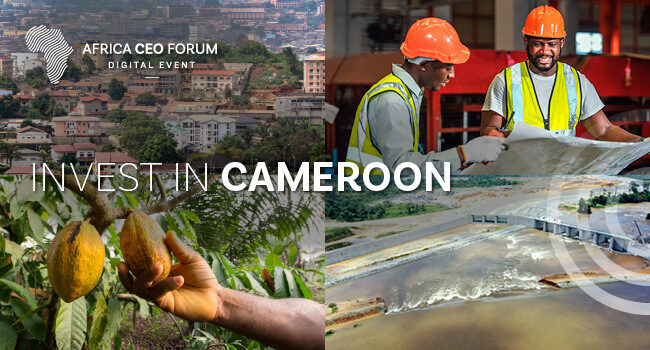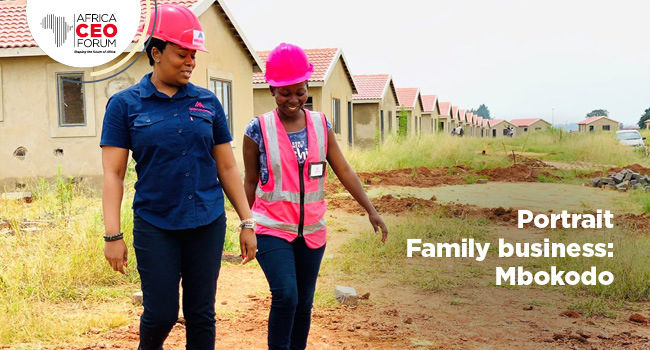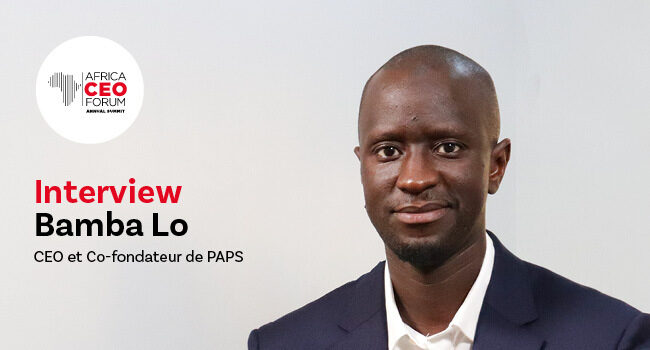Weathering the storm

Ikenna Nzewi, CEO & co-founder, Releaf
Ikenna Nzewi has the smile of someone who believes he can change everything. It takes great optimism to tackle African agricultural value chains, which are plagued by logistical constraints (transport, storage, etc.), difficult access to inputs (fertilisers, plant protection products, etc.) and poor mechanisation. But with Releaf, a startup that he created with Uzoma Ayogu in 2017 when he was still a student, this Nigerian-American graduate in computer science from the prestigious Yale University in the United States, has decided to market technological solutions (hardware and software) to inspire more local agricultural processing. Formerly a consultant for Bain & Company, Ikenna managed in 2021 to convince multiple investors to inject nearly US$4.2m into his company. He now aims to expand Releaf’s solutions for palm oil processing beyond Nigeria into West Africa. Meet a young man eager to change the world.
Ikenna, the last time we met was in the first months of the pandemic outbreak in June 2020. How has Releaf been doing since then?
It has been a period of growth and some good success for us as a company. In 2021 alone, we have experienced 15x revenue growth and consistent double-digit monthly growth in the amount of palm nuts we are purchasing and processing, which is a testament to the hard work and dedication of the team.
That may be the hardest challenge for a startup: Are you a profitable company as of today? If yes, since when, and if not, when do you see that point coming?
We made a number of investments in 2021 that place us on a strong path to profitability. The exact timeline for profitability will depend on the rate of our growth, availability of investment capital, and speed of operational improvements. As a seed stage firm, expanding our revenue and understanding how we can better support our farmers are the primary areas of focus. To achieve profitability, we are investing heavily in our Factory Positioning System which will enable us to set up factories that more easily and cheaply receive the raw material required. From there, we will make capital-efficient investments in vertical integration when our scale and needs accommodate such action.
The last six months have indeed been incredibly successful for Releaf with 4.2 M dollars coming from foreign investors, USAID, and different award winnings. How do you explain this success, and what will you do with this money?
Our success in 2021 is simply the result of our compounding investments in team, culture, and technology coming to fruition. Despite a lack of resources, Kraken development started in 2019 and has been our number one priority since. It’s been gratifying to see the market recognise the value of our bet on light industrialisation.
Next, we’re excited to create a more enabling environment for primary food-processing across the continent. To do so, we must put our money where our mouth is and develop/operate successful factories. Next, we will establish mutually beneficial relationships with emerging industrialists, providing our expertise in identifying value chains, siting factories, financing equipment and working capital, and optimising operations/profitability.
Our seed round will support the development and commercialisation of industrial food processing technology in Nigeria’s smallholder-driven oil palm sector.
In retrospect, how has the pandemic impacted your business?
Like most companies, the lockdown measures that were put in place to curb the spread of the virus presented significant logistical challenges that impacted many of our processes. The restrictions on movement (globally and locally) made the importation of components and machinery, movement of raw materials, and coordination of our team more challenging, but Releaf was a fully distributed company when it started, so we were able to adapt rather quickly.
Has your business model changed along the way?
To be honest, the pandemic has not had a major impact on our business model. If anything, it has sharpened our focus on the mission to drive the industrialisation of food processing across the continent. Africa must develop greater supply chain resilience to disruptions caused by climate change, natural acts, and infectious disease.
Do you think this pandemic will have long-term impact on Nigerian and/or African agribusiness value chains?
I think the impact of the pandemic on agribusiness in Africa will be heavily influenced by how we collaborate internationally and adapt to necessary adjustments that the pandemic causes. For example, the pandemic has driven inflation in food prices, which makes life more difficult for consumers. The average Nigerian currently spends around 60% of their income on food, compared with Americans who spend 10%. This is a situation that has been made worse by the pandemic and it is one that we need to fix in order to unlock consumer spending and build a more robust economy. I believe the pandemic has also generated more optimism in decentralisation and regional self-sufficiency as demonstrated by the massive year of FDI in Africa and other emerging markets.
You originally focused on palm oil. Why this crop in particular? Do you identify this as an easier value chain to start with?
In the early days of Releaf, we visited more than 20 states across Nigeria in six months and studied eight different commodity value chains. We bought and sold these commodities, trying to get an accurate understanding of how specific value chains function and where low CAPEX technology could catalyse industrialisation.
Oil palm has a biological advantage over substitute crops as it produces 6-10X oil/unit of land. Given that smallholder farmers rarely achieve yield targets, it’s key to start with a crop that does well even if the farmer doesn’t have every resource available for cultivation. Oil palm is also a perennial tree crop, so you can expect weekly harvests for two decades after the tree matures. That enables us to make CAPEX investments that we are confident in.
Do you now have plans to diversify into different crops? How do you select these?
Our plan in the short-term is first to expand geographically as oil palm grows similarly throughout West Africa before expanding into new crops. But yes, we have identified several other crops with compelling characteristics and are doing diligence on which to enter next!
A technological advantage is key for commanding a margin in agricultural value chains, so we do our homework before jumping into a new crop. Our next crop will have strong biological characteristics relative to their substitutes and a technology/operating model that makes it difficult for existing competitors to copy or compete.
Any plans to expand beyond West Africa?
We do have plans to expand across the continent and believe our approach here can be replicated around the developing world as many countries have more accommodating business environments than our current market. There is a need to build proficiency in Africa but also to serve a role in driving more of the Global South towards a prosperous future. Releaf aims to be a leader in pragmatic economic development globally.



